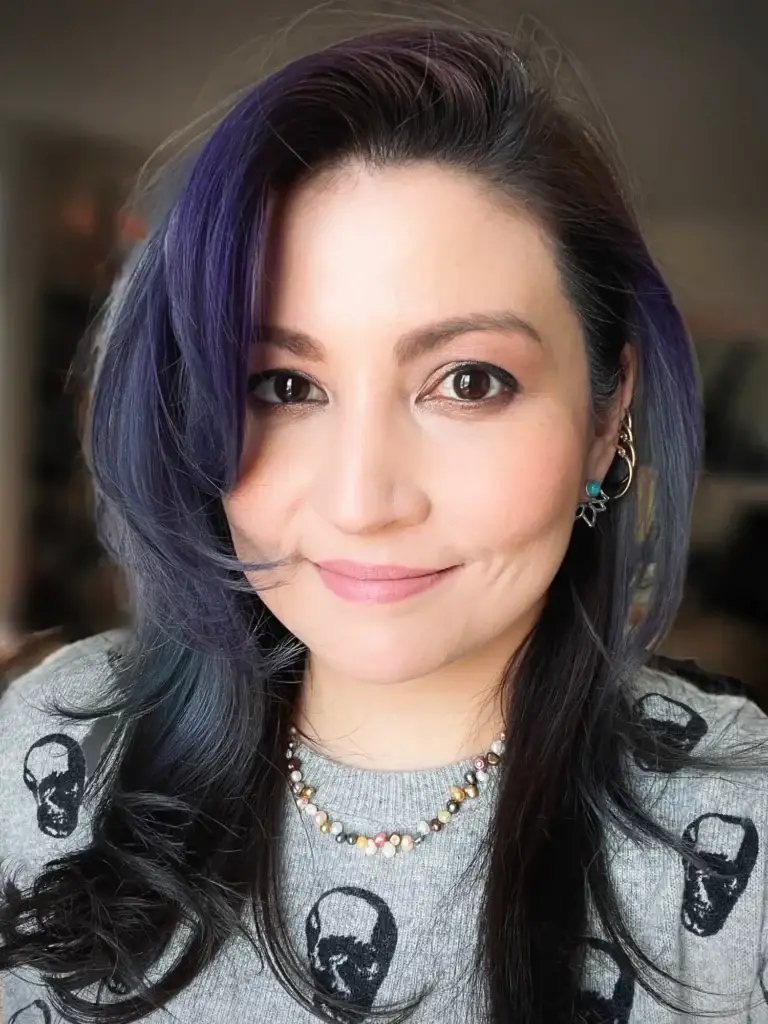Childhood Trauma and
It's Effect on Adulthood
Childhood trauma can have a significant impact on an individual’s mental and physical health, and can persist into adulthood if left unresolved. Seeking therapy for childhood trauma is a courageous and important step towards healing and growth. In this article, we will explore the difference between unresolved trauma and unresolved issues, common sources of childhood trauma, and how it can manifest in adulthood. We will also discuss when to seek help for overcoming childhood trauma and the various therapies available for healing, including TF-CBT, EMDR, and somatic experiencing. Healing from trauma does not mean forgetting it, but rather developing coping strategies and finding ways to live a self-directed.
When to See a Therapist for Unresolved Childhood Trauma
If you are experiencing PTSD symptoms as a result of unresolved childhood trauma, it may be time to seek the help of a therapist. PTSD symptoms include:
- flashbacks,
- nightmares,
- anxiety,
- depression,
- and emotional dysregulation
Therapy offers a safe space to explore and process through traumatic experiences, develop coping strategies, and improve emotional regulation. Seeking therapy for unresolved childhood trauma is a courageous and important step towards healing and growth.
Is Healing from Childhood Trauma Possible?
Healing from childhood trauma can feel like a daunting process, but the efforts made in therapy create a sense of safety, build resilience, and process traumatic experiences. “Healing the trauma” does not mean “forgetting the trauma”. Instead, “healing from trauma” allows clients to find ways to live a self-directed life instead of trauma-directed life. Therapy can help individuals develop coping strategies, challenge negative thoughts and beliefs, and process traumatic memories. Additionally, self-care practices such as exercise, mindfulness, and self-compassion can support healing and growth.
Common Sources of Childhood Trauma
Abuse, neglect, bullying and exposure to parental discord are common experiences reported by individuals who score moderately or high on the ACE’s assessment. Other sources of childhood trauma include:
- loss of a parent or guardian
- exposure to violence,
- exposure to parental substance use
- exposure to parental mental health issues
- exposure to natural disasters
What Is The Difference Between Unresolved Trauma & Unresolved Issues?
Unresolved trauma refers to trauma that continues to disrupt the daily functions of an individual due to a lack of processing and integration to a post-trauma life. On the other hand, unresolved issues refer to challenges that most people face in their lifetime that may or may not create a significant disruption in functioning. While unresolved issues can certainly impact an individual’s mental health, they may not necessarily cause the same disruption that is caused by unresolved trauma.
How Common Is Childhood Trauma?
Research indicates that up to two-thirds of individuals have experienced at least one type of trauma before the age of 18. Anyone, regardless of age, gender, race, or socioeconomic status, may be impacted by childhood trauma. However, there are communities that are more vulnerable to traumatic experiences due to poverty, access to support and treatment, along with environmental factors such as intergenerational trauma and/or systemic racism.
How Can Childhood Trauma Manifest in Adulthood?
Childhood trauma can manifest in a variety of ways. Below are three categories of reported symptoms in adults
Common Physical symptoms Include
- headaches,
- digestive problems,
- chronic pain, and
- autoimmune disorders.
Common Emotional symptoms
- anxiety,
- depression,
- post-traumatic stress disorder,
- dissociation,
- difficulty regulating emotions.
Common Interpersonal Challenges:
- difficulties with trust,
- difficulties with intimacy, and
- difficulties with communication.
How do therapists measure trauma?
Therapists may use the Adverse Childhood Experiences (ACEs) questionnaire to measure trauma symptoms. Consisting of 10 questions, this tool assesses an individual’s experience of abuse, neglect, household dysfunction, and other traumatic events/adversity. Higher scores indicate higher level of exposure, therefore, indicating higher vulnerability to trauma-related disorders.
The ACEs questionnaire provides valuable information to therapists in understanding their clients’ experiences and identifying potential areas of focus in therapy. Keep in mind that the ACEs tool is just one method of assessing trauma, and to fully understand an individual’s need, further assessments are needed and therapy should foster a collaborative process between the therapist and client.
Working Through Childhood Trauma
Those who are experiencing challenges stemming from past trauma should work with a therapist who specializes in trauma-focused therapies. This can help to process traumatic memories, develop coping strategies for managing triggers and distressing emotions, and build resilience and self-compassion. Treatment may also incorporate self-care practices such as mindfulness, exercise, and art therapy.
COMMON APPROACHES USED TO TREAT TRAUMA ARE:
When to Seek Help
In addition to these approaches, some therapists may incorporate mindfulness-based therapies, art therapy, or other creative expression.. The therapy approach will depend on the individual’s unique needs and experiences, and it may be helpful to work with a therapist who is trained in a variety of techniques to tailor treatment to each client’s specific needs.
It is important to seek help for overcoming childhood trauma as soon as you begin to notice its impact on your daily life. This may present as anxiety, depression, nightmares, flashbacks, or difficulty regulating emotions. Other signs may include avoidance of certain situations or memories, feeling disconnected from others, or engaging in self-sabotaging behaviors.
FAQs about online therapy in new jersey
How do I get started as a new client?
New Clients can reach out to us directly via call, text or email here:
What is your cancellation policy?
We ask that clients provide at least 24 hours notice in the event that they need to cancel to avoid the 50% cancellation fee. we understand that life happens and do our best to be flexible & reschedule.
Does my insurance cover my visits?
We provide”Courtesy Billing” for clients who are using the Out-of-network insurance benefits.
Our Insurance Page shares a small blurb about Why We Left Insurance Panels
Do you offer traditional talk therapy?
of course! though we have some unconventional therapy approaches, we are rooted in evidenced based practices. Talk therapy is a major player in the therapy room! See What we Treat and Integrative Services for more information
Is Online Therapy As Effective As In-Person Therapy?
Online therapy is essentially face-to-face counseling, just conducted remotely. Studies show that teletherapy is as effective as traditional counseling. Professional organizations and state governments recognize its benefits and have set regulations for it. However, like any therapy, its success in achieving your goals isn’t guaranteed. It’s important to discuss with your therapist whether teletherapy is working for you.
Can I Change Therapists If I'm Not Happy?
Yes, you can switch therapists to another provider within the practice, or we can provide you a referral if preferred. We want to ensure that your time and effort are well spent, and that you are getting the relief you need, that’s why we work collaboratively with each other in the practice, as well as outside therapists who we know and trust.
How Do I Know If Therapy Is Helping?
You should feel like you’re making progress. Signs it’s working include:
Feeling comfortable talking to your therapist
Your therapist respects boundaries
You’re moving towards your goals
You feel listened to
You’re doing better in life
Your self-esteem is getting better
Is Online Therapy Easy to Use for Non-Tech-Savvy People?
Yes, it’s pretty simple to access sessions. You’ll need basic internet skills, such as opening and visiting the patient link sent to you via email. It’s similar to video chatting like Facetime or Zoom. We can also walk you through it on the phone the first time to ensure a strong connection
What Questions Should I Ask My New Therapist?
Feel free to ask anything. Some good questions are:
- How often will we meet?
- What do you specialize in?
- What experience do you have with my issue?
- What outcomes can I expect?
- How will I know I’m progressing?
- How long do you usually work with clients?
- How will we set my treatment goals?
How Should I Prepare for My First Session?
Showing up is all that you need to do! But if you really want to get the most out of session, it could help to take some time to think about what you want from therapy. It helps to write down your goals, questions you have or things that you feel are important to share.
What is the difference between associate therapists & fully licensed therapists?
Our Qualifications:
Our founder, Rebecca Sidoti, is a highly qualified, state-licensed therapist and supervisor with extensive training in anxiety related disorders and innovative treatment such as Ketamine Therapy. Mind by Design Counseling adheres to standards set by the our governing counseling boards.
To see each providers credentials, training and licenses, visit our “Meet the Therapists” Page to learn more.
- LAC/LSW are therapists who may practice clinical work under the supervision of a fully licensed therapist.
- LPC/LCSW are therapists who have completed the necessary clinical hours post-graduation under supervision and can practice clinical work independently.
What Geographic Areas Are Served?
Currently, we serve clients in New Jersey and are expanding to other states as telehealth laws evolve. While telehealth offers the convenience of attending sessions from anywhere, state laws require clients to be in-state during their session.
Is Virtual Counseling Suitable for Everyone?
Online therapy might not be as effective for individuals with chronic suicidal thoughts, severe trauma, significant mental health history, or those recently in intensive care. Such cases often benefit more from traditional, in-person counseling. We’ll help you decide if our online services are right for you during your intake and evaluation.
What Equipment is Needed for Online Therapy?
To join a session, log in using the credentials we provide. No downloads are needed. Our platform, compatible with both individual and group sessions, requires:
A computer or mobile device with a webcam and internet access.
We’ll help you test your setup before your first appointment to ensure a reliable connection. iOS users should use the Safari browser for mobile and tablet sessions.
What Questions Will Therapists Ask Me?
It depends on your goals. Expect questions about your thoughts, feelings, relationships, work, school, and health. They’ll ask to understand your therapy goals.
How Do You Keep Client Information Secure?
Security and Confidentiality of Sessions:
Your privacy is crucial to us. We use TherapyNotes, a HIPAA-compliant platform, ensuring secure and confidential teletherapy sessions. This platform’s security features include encrypted video connections, secure data transfers, and encrypted databases, ensuring your information is safe at all times.
What is VRT used for?
we use VRT to support Exposure Therapy, a long standing traditional therapy modality to treat phobias, anxiety and stress. we send a headset directly to your home so you can access VRT from anywhere.
VRT not only helps with exposure therapy for phobias, but is great for ADHD, mindfulness, PTSD and social anxiety.






